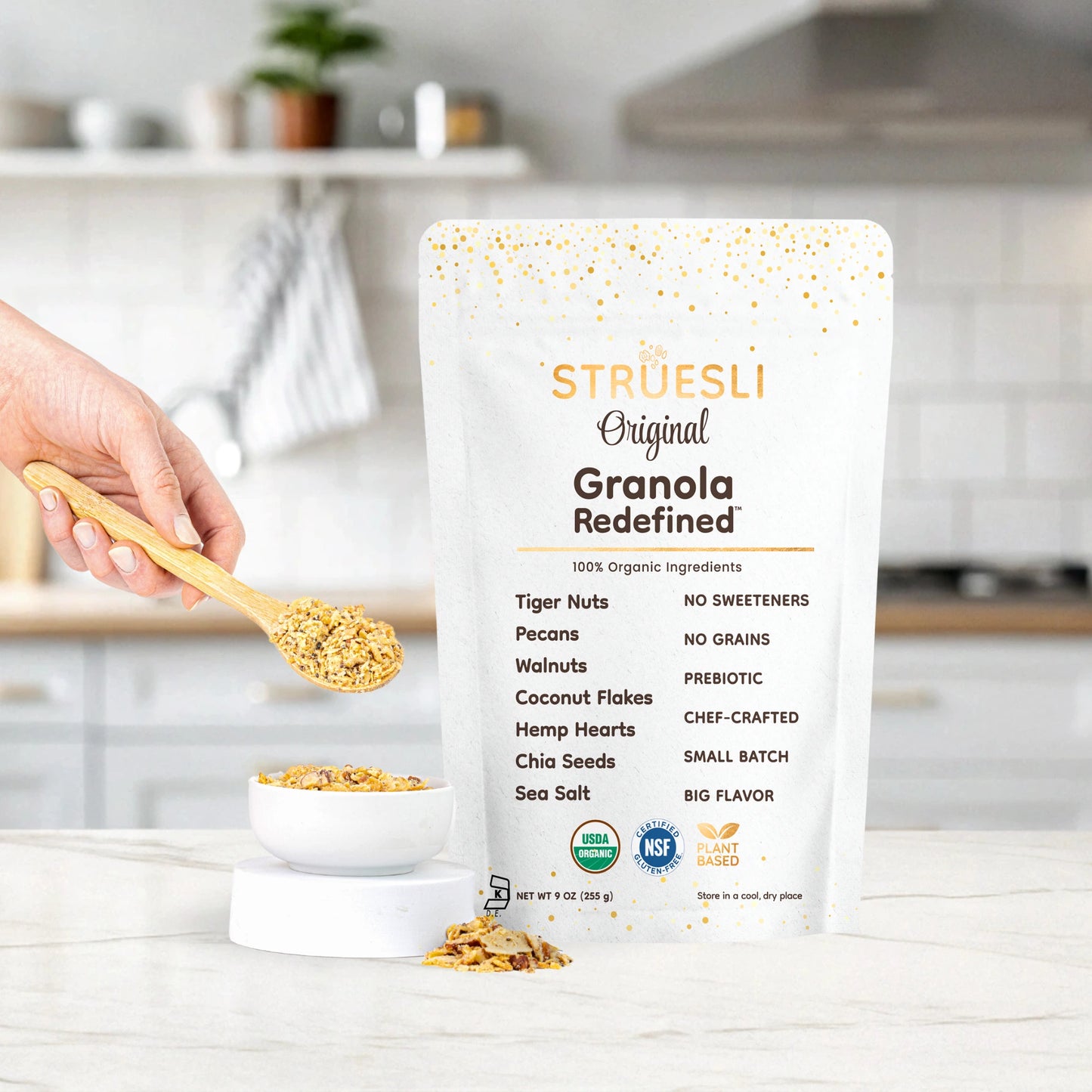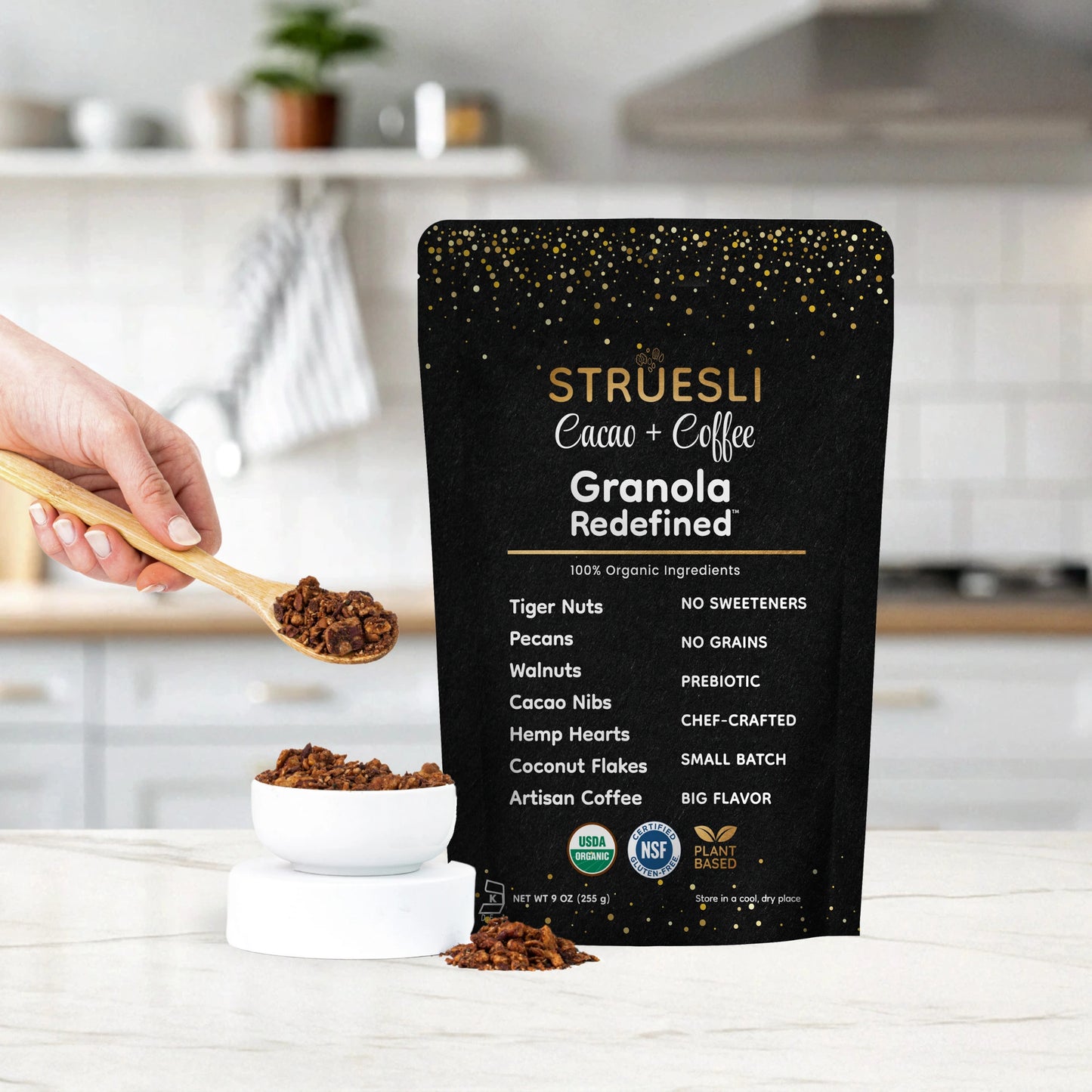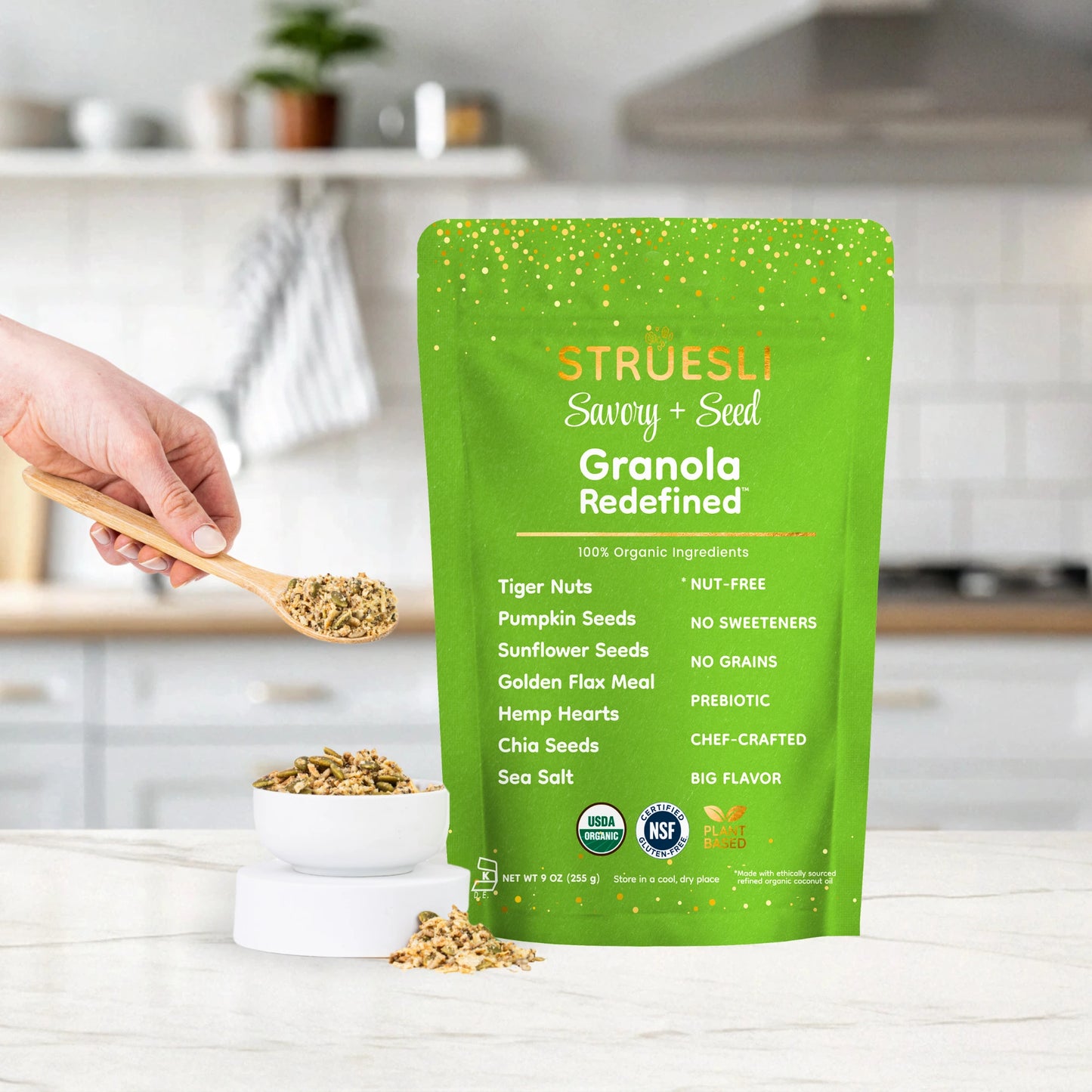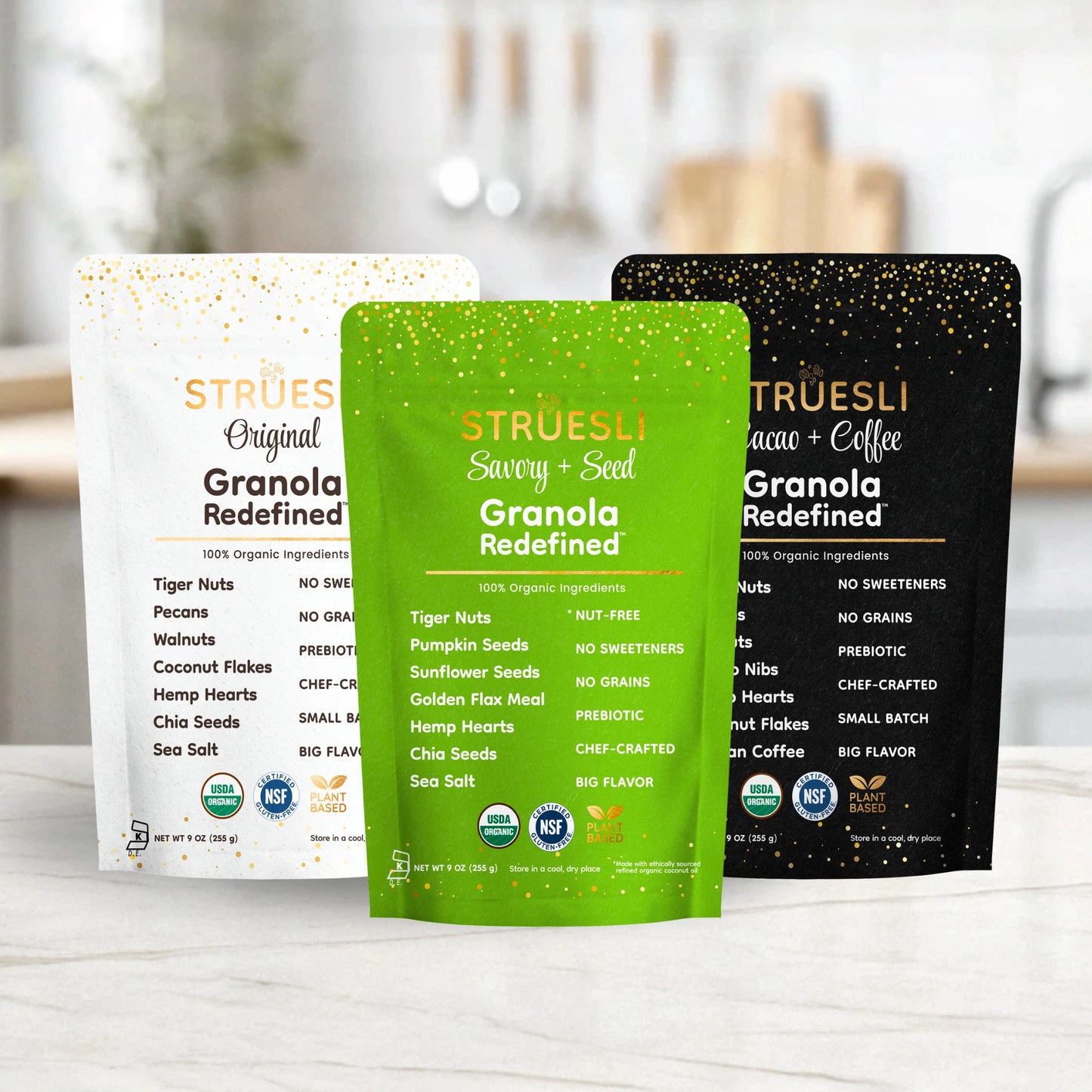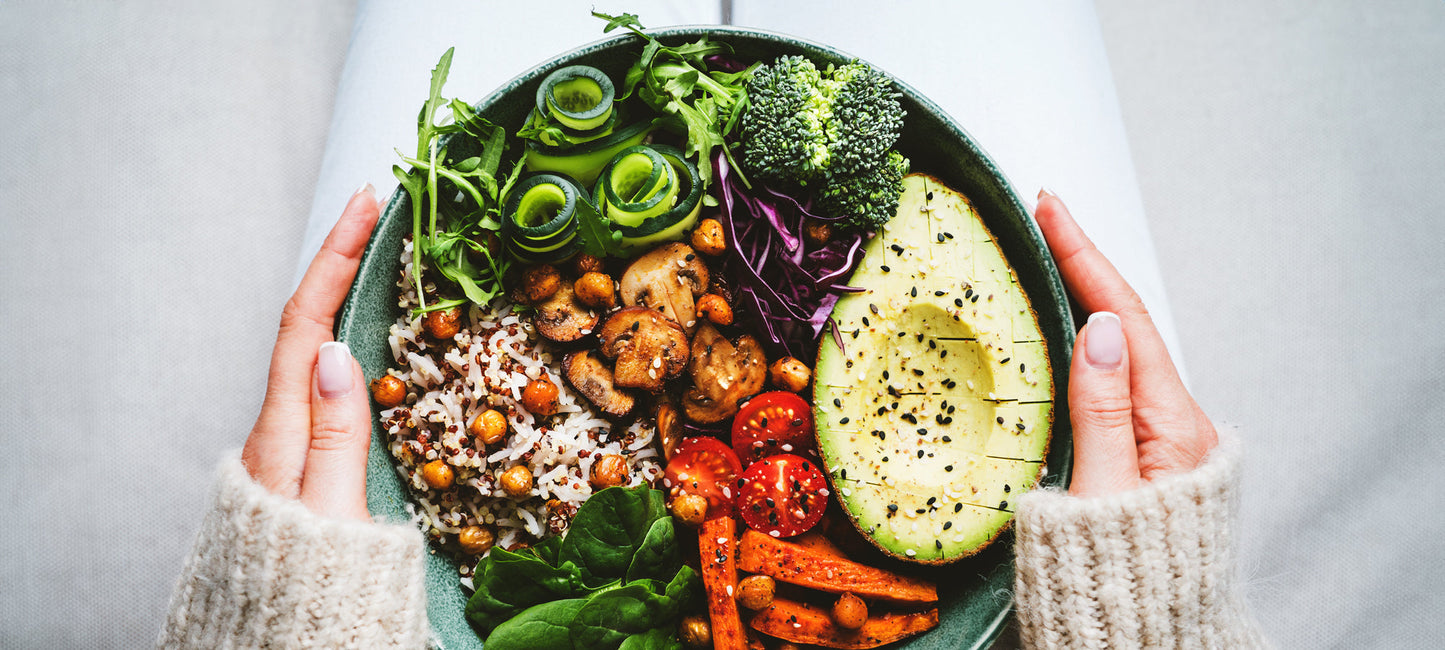
Plant-based food products, especially those that mimic a typical animal-based product like milk or meat, are extremely popular. Over the last decade, interest in plant-based eating has skyrocketed.
Why Plant-Based Foods Are on the Rise
There are several reasons for the growing interest in plant-based diets:
- Health benefits: Due to growing interest in personalized health and chronic disease management, health professionals may recommend plant-based eating. Because of their higher fiber and antioxidants, plant-based diets are linked to reductions in heart disease, type 2 diabetes, and even some cancers.
- Environmental benefits: Animal agriculture is a major contributor to greenhouse gases, deforestation, and water usage. Cutting back on animal intake reduces demand for animal-based products, and lessens an individual's environmental impact.
- Animal welfare benefits: Growing awareness of inhumane conditions in factory farming and fisheries has some shifting away from animal-based diets for ethical reasons.
- Access benefits: Many people are trying plant-based foods simply because there are more plant-based versions of typical animal-based products than ever before. Plant-based milks, cheeses, burgers, chicken, creamers, deli meats, and more have flooded into the marketplace creating options that weren't available only a decade ago.
Flexitarian Diets: A Growing Trend In Plant-Based Eating
The percentage of Americans who identify as vegan or vegetarian hovers around 3% to 6% (respectively), and those are stats that haven't significantly budged in decades.
However, more people than ever are calling themselves flexitarian. Wondering what is a flexitarian diet? It refers to someone who follows a mostly plant-based diet but occasionally eats meat and dairy. According to a survey by Sprouts Farmers Market, flexitarians now represent more than one-third of all U.S. adults and more than half of adults ages 24 to 39.
Processed vs Unprocessed: The Two Sides of Plant-Based Foods
Trends like the flexitarian diet have resulted in a boom of new plant-based products over the last five years, but what we’re seeing is a great divide in how plant-based wisdom is interpreted.
The whole food plant-based diet approach
On the one hand, new plant-based foods represent nutritious and low-processed options based on healthy whole plant foods, such as nuts, seeds, fruits, vegetables, grains, and plant oils. Struesli falls into this category, providing a 100% plant-based granola made from tiger nuts, walnuts, pecans, and coconut. Since the ingredients are low processed, they DO retain all those wonderful nutrients that plants provide: essential fiber, vitamins, and minerals. Are plant-based products like these actually good for you? Absolutely!
The processed plant-based diet approach
On the other hand, plant-based innovation has also resulted in many products that fall into the highly processed category. Though they’re based on a plant (usually soybeans, peas, and/or wheat), the main ingredients are stripped down to high-protein, low-fiber, colorless powders mixed with preservatives, oils, natural or artificial coloring, gums, and seasonings. Are plant-based products like these actually good for you? Not really.
Are All Plant-Based Products Healthier for You?
Just because something is plant-based doesn’t mean it’s automatically better for you. There are many nuances involved, but selecting more plant-based foods should align with your goals.
If your goal in choosing more plant-based options is …
- to make better environmental choices … then plant-based foods of all types almost always have a lower carbon footprint than animal-derived choices, especially beef
- to be kinder to animals … then plant-based foods are probably the better choice, especially since they reliably spare domestic animals. However, there is one notable caveat: industrially produced GMO soy, which happens to be the base of many high-tech, high-processed plant-based alternatives. Its production has been shown to disrupt rich ecosystems like the Amazon rainforest and the American Midwest, and are thus more harmful to wildlife.
- for your own better health … then plant-based foods may or may not be a better choice for you. The answer is a personal one, and is based on your tendencies and preferences. If you’re interested in eating more plant-based foods because you don’t get very many of them and the only way you’d stomach vegetables is if they actually taste like meat and dairy, then those highly processed plant-based alternatives are not necessarily a healthier choice than the real thing. They could, however, be a gateway into eating healthier and lower processed plant-based foods, which is the evolution you’d have to make for this to truly be a nutrient-rich path for you. If you do already enjoy many plant-based foods, then most definitely skip those highly processed plant-based options. Stick with the true winners in the plant-based marketplace: Products like Struesli plant-based granola, which are based on nutrient-dense, low-processed, health-promoting plants.
Written by Jessie Shafer, RD
Updated July 13, 2025

